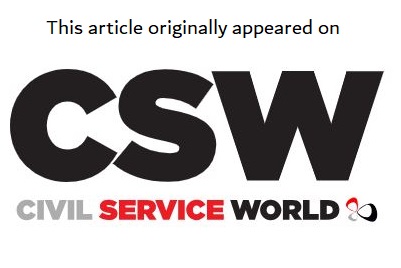A new research report from the FDA claims that investing £1bn in improvements to the tax department’s technology and processes could provide government with a tenfold return on its investment
An investment of £1bn into upgrading the technology and processes of HM Revenue and Customs could provide a return of more than £11bn, a union report claims.
The Association of Revenue and Customs (ARC) report is supported by a survey which calculates that HMRC is losing about four million working hours per year because of IT issues. Other challenges identified in the Funding the Nation: Optimising HMRC report include low staffing levels and processes that impact workers’ ability to work efficiently.
The survey carried out by ARC – the FDA union’s section for senior HMRC officials – quizzed 700 departmental officials and found that 81% agreed that “current departmental processes and systems inhibit [their] productivity”, while 68% said lack of staff had impacted their work, and 55% of respondents said issues with technology inhibited their ability to work effectively.
IT issues are wasting an hour-and-a-half of the average HMRC employee’s week, according to the survey, with 15% saying they lose more than four hours to poor technology – equating to around one-tenth of a full-time staff member’s working hours.
The union said that, extrapolating this across HMRC’s full workforce of roughly 61,000 full time equivalent staff worked out at around four million lost working hours per year.
Related content
- HMRC backtracks on plans to suspend helpline services
- ‘We do not want it to be a hardship to contact us’ – how HMRC hopes to use AI and analytics to transform customer service
- HMRC: 85% of customer service is now digital
FDA general secretary Dave Penman commented that it is “completely unacceptable in 2024” that HMRC officials are reporting losing hours of working time every week because of poor technology.
Respondents also said improving poor processes and technology and increasing staffing levels were the best ways to increase HMRC’s tax compliance yield.
Some 62% said “more efficient internal processes” would be an effective way to increase the yield, while 58% agreed having “additional staff” would help. Almost half of respondents (47%) said improving technology would be an effective way to achieve this. Respondents could pick more than one answer.
The concerns among staff are mirrored by deteriorating standards in customer services, with average customer hold times on HMRC phone lines increasing from an average of four minutes 42 seconds in 2014 to the current average of 24 minutes, according to the report. ARC says this, combined with poor postal services, is costing UK businesses around £1bn per annum.
The report, estimates that, if the government invested £700m into its tax compliance regime, and £210m into customer services, it could raise £11.3bn for the next government over a period of parliament – or over five years.
Penman said previous strategic investments in HMRC compliance have successfully increased the tax take but these investments have been “ad hoc”.
“To more effectively deliver compliance yield, HMRC needs a clear long-term plan,” he added. “As we approach the upcoming general election, I call on all political parties to take these recommendations on board and pledge to properly invest in HMRC. I believe this report provides a blueprint for a future government, of any colour, for how to deliver better administration in this country. A world-class tax administration is in the public interest. Only an HMRC that is properly resourced to face new technological challenges, stay ahead of criminals and support taxpayers will deliver the revenues that can support our economic recovery and be able to give the government choices about investing in growth.”
An HMRC spokesperson said: “We have a complex IT estate and we are constantly working to improve it to support both customers and our colleagues. We’ve also invested significantly in rolling out modern digital devices to all our colleagues and the best collaboration tools, ensuring they have the right tools for the job and can be as productive as possible.”





